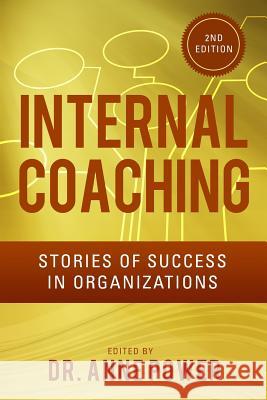Internal Coaching » książka
Internal Coaching
ISBN-13: 9780996051248 / Angielski / Miękka / 2014 / 150 str.
Coaching is the hottest trend in leadership today, a billion-dollar industry worldwide, and there are hundreds of coaching books on the market to prove it. But Internal Coaching: Stories of Success in Organizations was created to fill specific gaps in the market, and it differs from other coaching books in significant ways. As titled, the book deals with internal coaching-coaching that originates and is carried out within an organization. The goals of the internal coaching process can thus be aligned with business goals. Coaching can also create a culture of trust and cohesion that improves employee satisfaction and performance. An internal coaching program is an enormously powerful organizational tool, but it requires substantial investment, not least of which is ongoing commitment from top management. Thus, organizations implementing such programs tend to be large-frequently multinational-progressive, highly competitive, and elite. No other book on the market deals so extensively with this coaching environment, because few people have access to it. Internal Coaching is written by practicing coaches-not by consultants, business gurus, theoreticians, or business journalists-who practice at a very high level. The authors are in fact the same people who carried out the initiatives described in the chapters. All are alumni or faculty members of the Columbia University Coaching Certification program, widely regarded as the leading program globally and one of the few offering a concentration in internal coaching. The authors thus share a core discipline and adhere to Columbia's rigorous intellectual and ethical standards. They also share a profound understanding of the transformative nature of coaching, not only for the organization, but for the individuals within the organization. Despite the intensity and complexity of the coaching programs described herein, the discussions in Internal Coaching are completely practical and descriptive of how coaching initiatives work on the ground. The narratives are lively and accessible and will be useful not only to practitioners, but to anyone who wishes to understand the impact of coaching on organizations-for example, CEOs, COOs, CLOs and other executives interested in Human Resources, Learning and Development, or Organizational Development. Internal Coaching will be particularly valuable to executives implementing or considering a coaching program. It will be a refreshing supplemental text for people in MBA or Executive Education programs, in MA and EdD/PhD leadership programs in other administrative disciplines-and, of course, in coaching programs.











